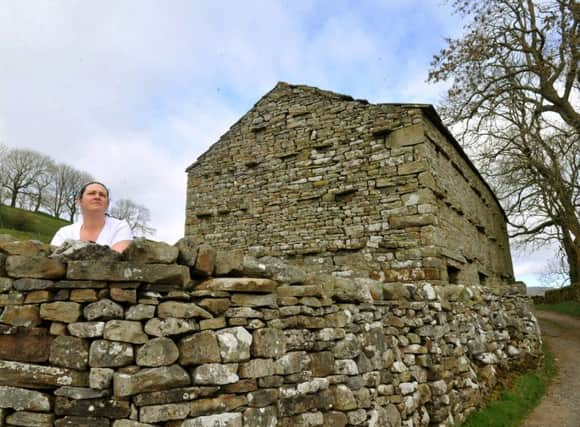Planning rules on Yorkshire barns '˜still mired in red tape'


A relaxation of the rules for converting roadside barns was brought in to ease the pressure on countryside communities with more than 40 developments passed by the Yorkshire Dales National Park Authority in the past year.
But those who have embarked on bids to convert farm buildings into homes have warned that the planning process remains plagued by bureaucracy which is putting off many potential developers.
Advertisement
Hide AdAdvertisement
Hide AdSeven years after she started the process, Kelly Cooper and her husband, Haydon, are still mired in the paperwork.
While their application has been agreed, they have spent a small fortune. And she is not sure, she says, that she would encourage anyone else after what they have been through.
“I wouldn’t like to think how much we’ve spent,” the 37-year-old said. “Every time we write a cheque, I think ‘that’s a kitchen, or a bathroom’. All I’ve wanted to do was stay here and have my own home, in the place I want to live.
“It’s nice to think that might happen again. But it’s difficult to say to someone else ‘yes, do it’. It’s just so hard. We thought the difficult part was the planning application.
Advertisement
Hide AdAdvertisement
Hide Ad“But it’s still ongoing. We haven’t ticked all the boxes. You almost get the feeling that while they have relaxed the rules, they are still putting people off.”
Figures from the National Housing Federation show the average property price in the Dales district of Richmondshire is £224,725, while the average wage is just £24,528.
Mrs Cooper was brought up in the Dales, on the family-run Newstead Farm in Askrigg. She cannot imagine ever living anywhere else, but she and her husband cannot afford to buy locally.
Seven years ago, they started to consider converting the family barn. They were told a flat ‘no’. When talk began again of relaxing the rules, she was hopeful it could mean a real change for them.
Advertisement
Hide AdAdvertisement
Hide Ad“Without this, I would never own a home,” she said. “If you’re quite young there are local occupancy schemes, supposedly affordable housing, starting at £150,000 for a two-bed house.
“We just can’t buy anything, not even what they would call affordable. If we were 20 years old then maybe, but I’m 37. I just don’t earn enough. It’s not an easy place to live in terms of services and shops. But I don’t know any different. We really don’t want to go anywhere else.”
When the rules were relaxed, the couple were among the first to submit their application.
“That was what we thought would be the difficult part,” she said. “But the surveys are unbelievable. It just escalated.”
Advertisement
Hide AdAdvertisement
Hide AdWhile the planning authority seems keen to agree applications and make real change, she said, there are endless recommendations in officers’ reports from environmental health to highways.
“We are still waiting for a local occupancy clause, until we get that we can’t build,” she said. “For that privilege, we have to pay £500. I don’t want that clause - I have to pay for something that will devalue my property.”
What is needed, she said, is a simpler process, adding: “They want to keep families here, but they don’t seem to help themselves.”
Hopes of converting family barn
For seven years, farmer’s daughter Kelly Cooper has had hopes of converting this barn into a family home with her husband, Haydon.
Advertisement
Hide AdAdvertisement
Hide AdTraditionally a dairy farm, run by her mother and grandfather before her, Newstead Farm between Hawes and Askrigg is her childhood home and she does not want to leave.
Despite working three jobs, as a sports and massage therapist, in the local pub, and as a housekeeper, she cannot afford to buy a home locally.
And when her brother built his own home on land at the family farm, she hoped to be able to convert the barn.
“If this hadn’t been successful, we’d have had to think very seriously about moving away,” she said. “But I can’t imagine living anywhere else.”